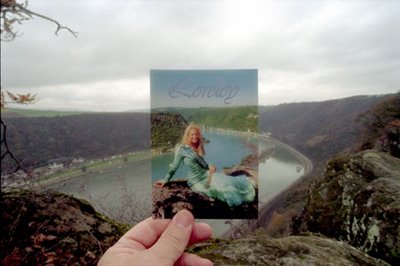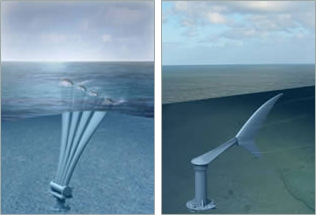
Having hewn his way to the dark heart of the Internets, Colin Rule has issued a traveler’s advisory: Here be strong language.
His conclusion:
We're going to have a long row to hoe to restore any semblance of civil political dialogue in this country any time soon.
The word “restore” is as odd in this context as “semblance” is revealing.
In 1956 – a golden year for decorum and propriety, or so I’m told - Senator James O. Eastland publicly announced his distaste for “black, slimy, juicy, unbearably stinking niggers.” That’s fairly strong language right there, and while a few shrinking violets may be gratified that Eastland was too much of a gentleman to say “unbearably stinking
fucking niggers,” it’d be pretty hard to make the claim that our political dialogue has become
less civil than it was in Eastland’s day. By the same token, it’d be hard to argue that Eastland’s views would’ve been more palatable if he’d expressed them in politely coded language (as his protégés do today).
I usually leave the civility beat to Thers, partially because the man’s a drunken brute who guards his turf as jealously as a piss-spraying pit bull, and partially because the official and quasi-official control of language is his area of expertise. This time around, I’ll venture a few disorganized thoughts of my own (with the understanding that I'm not attacking Colin Rule, but using his warning about "strong language" as a jumping-off point).
A few years back I read that when voice recorders are retrieved from crashed planes, it very often happens that the pilot’s last words before impact are excised from the official transcript, because they’re along the lines of “Oh, fuck!” That phrase can’t do justice to a pilot’s feelings at that moment, any more than “I love you” could in a happier circumstance; there are things we simply can’t do with words, no matter how “strong” our language may be.
In his book
Wartime, Paul Fussell devotes a chapter to the frequency, duration and intensity of military swearing. It’s pretty amusing, until you read the chapter entitled “The Real War Will Never Get in the Books," which describes how often soldiers in WWII were injured or killed when a friend's severed hand - or head, or penis - struck them at a high velocity.
Donald Rumsfeld might respond to a blow from a severed penis with “goodness gracious” (if he were on camera, at least), but I think most people would say something a bit more colorful. Still, even if they were to scream the most elaborate obscenities at the top of their lungs for days, the elemental horror of the experience – the
real obscenity, that is – would remain unexpressed and inexpressible.
Which reminds me: I recently saw a picture of an Iraqi father cradling a dead child whose torso ended in a sopping confusion of shattered bone, flayed fat and dangling veins. I don’t know what it’s like to be him. I don’t
want to know. For that matter – and this is the essential point – I don’t even want to know what it’s like to be
me, and see this obscenity committed in my name. Even though my grasp of this man’s misery is infinitesimal, it feels like more than I can stand. I’d gladly forget all about it, except that I’d have to kill part of myself to do it.
In one of her essays, Marilynne Robinson mentions a new disease discovered by American doctors among slave women whose children had been taken from them and sold. It was apparently a sort of despondent, tearful malaise…exactly the sort of reaction you’d expect from a mother whose children had been taken from her and sold, in other words. But this obvious interpretation was impossible – for some people, at least – because it would’ve shifted the diagnosis of sickness from the grieving mother to the “dispassionate” observer of her grief.
It seems like the guardians of “civil discourse” are wondering in much the same way what strange new disease has infected their fellow citizens. It couldn’t
possibly be that our horror and outrage is actually appropriate to our situation (or more appropriate than their reaction, at any rate). Our incivility must be due to a mysterious increase in partisanship, exacerbated by online anonymity. Whatever the cause, though, it's preventing us from soberly debating the really important questions (like whether invading Iraq was a bold, decisive move for which Bush deserves our admiration, or an honest mistake, based on the best possible motives, for which he deserves our respect).
I hasten to add that I’m talking about
sincere civility police. I’m not talking about the sniggering bullies who laboriously goad people into defending themselves against insane slurs and then accuse them of having anger-management problems.
Nor the prissy sociopaths who pretend that polite language is more important than the urgency and accuracy of one's message (even though they’d elbow aside a dozen pregnant women if someone yelled “man the fucking lifeboats…the motherfucking ship is sinking!”).
Nor the appalling, dead-hearted cultists who claim that respect for the office of the president should protect a vicious halfwit like George W. Bush from “incivility,” while generations of competent and intelligent politicians remain fair game for the lurid abuse of every cryptofascist lickspittle from here to the Dry Tortugas.
Nor am I talking about a supreme asshole like Tacitus, who practices all these dark arts at once, and whose only saving grace is that his prose – which reads like Ayn Rand channeling Robert E. Howard while wasted on Romilar – is so soporific that most of his targets will nod off over some orphaned clause long before they manage to tease out the details of their trumped-up infractions against "civilized" discourse.
No, I’m just talking about the kind of people who, thanks to fear or self-interest, can’t accept that Bush's actions are heartbreaking, immoral and dangerous beyond all reckoning, and that the only really serious problem with "strong language" is that it isn't strong enough to bear witness to the full horror of the crimes that are being committed in our name.
It's no wonder our country needs civility so desperately. Without it, we might have to change.



























